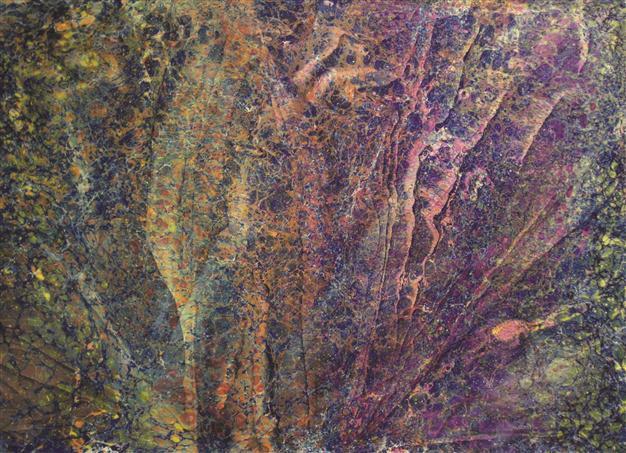Feelings rejected in modern ebru art
Hatice Utkan ISTANBUL - Hürriyet Daily News

TOÇEV President Ebru Uygun displays her first works of ebru to give support to children.
Ebru Uygun is a busy woman in charge of the education activities at the Tuvana Foundation for Educating Children (TOÇEV). She launched the foundation in 1994, and since then has been in charge of the management of the foundation. She travels across Turkey giving children who do not have the education the chance to read and write. Currently she has another important interest involving the Ottoman art of ebru, in which paint in water is used to make designs on paper.Uygun started to make ebru paintings six months ago, and she is still continuing. “As a result we decided to make an exhibition and exhibit the works that I have made. We will give the money that we get from this exhibition to TOÇEV to support the education of children,” said Uygun during an interview.
“First of all, ebru art requires patience and a tranquil environment. You reflect your inner feelings, and in order to reflect those feelings you have to be balanced,” said Uygun.
TOÇEV the main reason
The main reason that she is doing this is TOÇEV. “The support I get from TOÇEV makes me want to create these ebrus,” said Uygun, noting that when supporting children’s education facilities you feel the happiness that those children felt. “This art is the reflection of those feelings.”
The exhibition is the reflection of these feelings, according to Uygun. There are 22 works in the exhibition.
“It’s is very exciting for me, because my real job is not art. However, there has always been an artistic part of me,” said Uygun. “We are dealing with feelings all the time because we are focused on education and children.”

Uygun is constantly creating new projects to support the education facilities of children. “I see the changes of children as they are educated, and how happy they become as they go to a school. This makes me happy,” she said, adding that while she created her art she used those feelings and reflected them on paper as ebru art.
Uygun has also written books. “However, reflecting my feelings via ebru is better. I am still writing books but water, colors and paper is another world for me,” she said.
Noting that she had only taken a few ebru lessons, Uygun said, “Even with few lessons I created those paintings.”
Describing her ebru works as different from classical ebru works, Uygun said, “There are different notions in my works, they are not like classical ebru works that people are used to seeing.”
The ebrus of Uygun may be called “modern ebrus,” as they do not follow the traditional ebru style.
“There are many colors in my works,” she said, adding that there were also different stories in the works.
“For example, once I created a work based upon an important decision that I made. This work reflects the ‘euphoria’ that felt when I was deciding on a certain event in my life. There was no beginning and no end to it. I tried to reflect it with the colors,” she said. “One of my friends bought this work because she saw what I felt in it,” added Uygun.
















